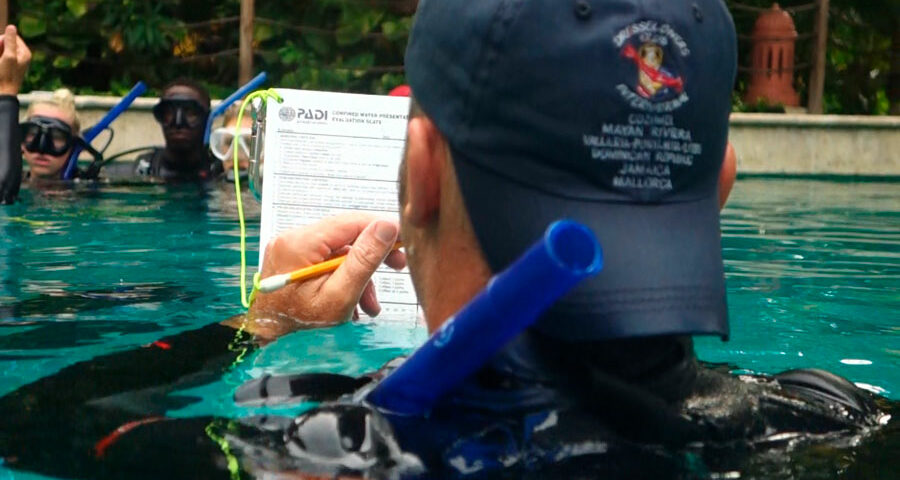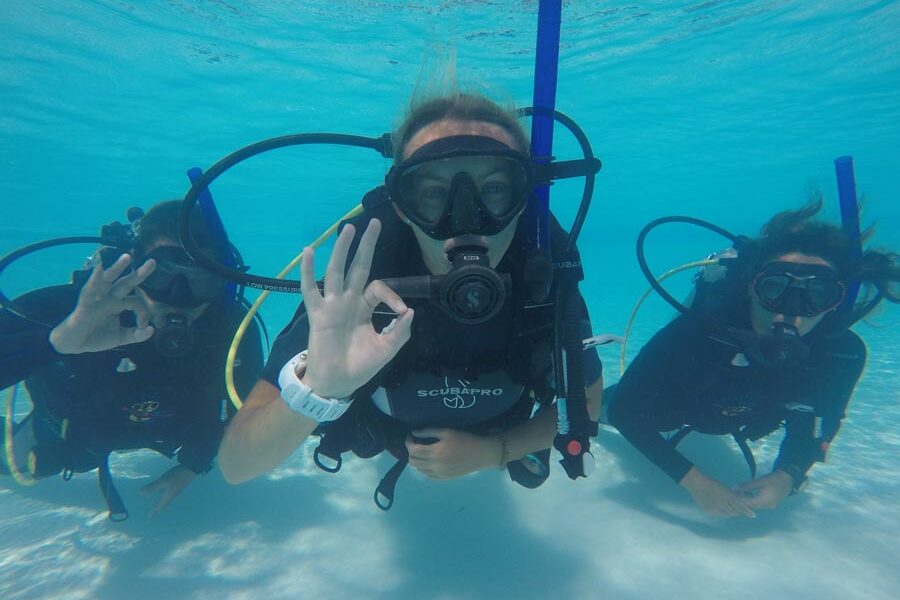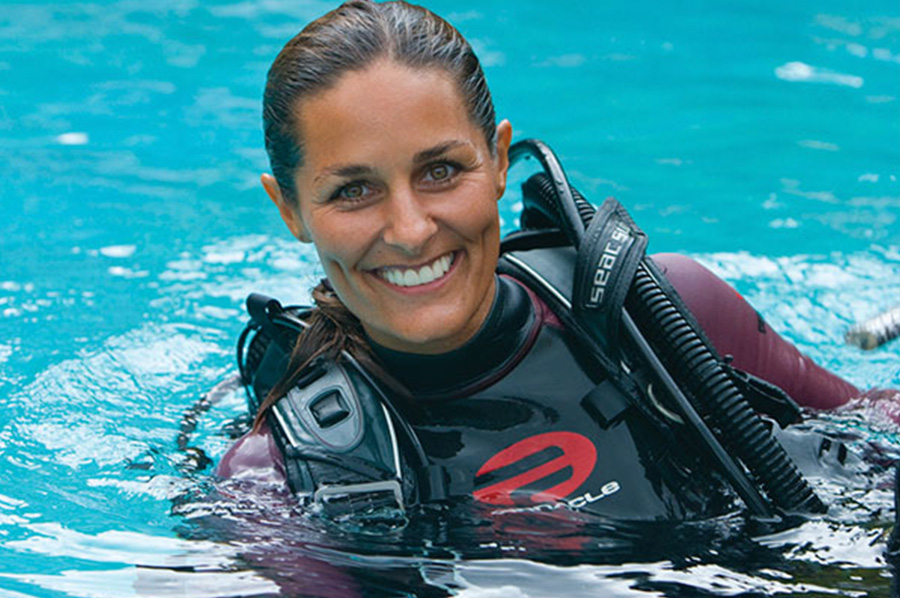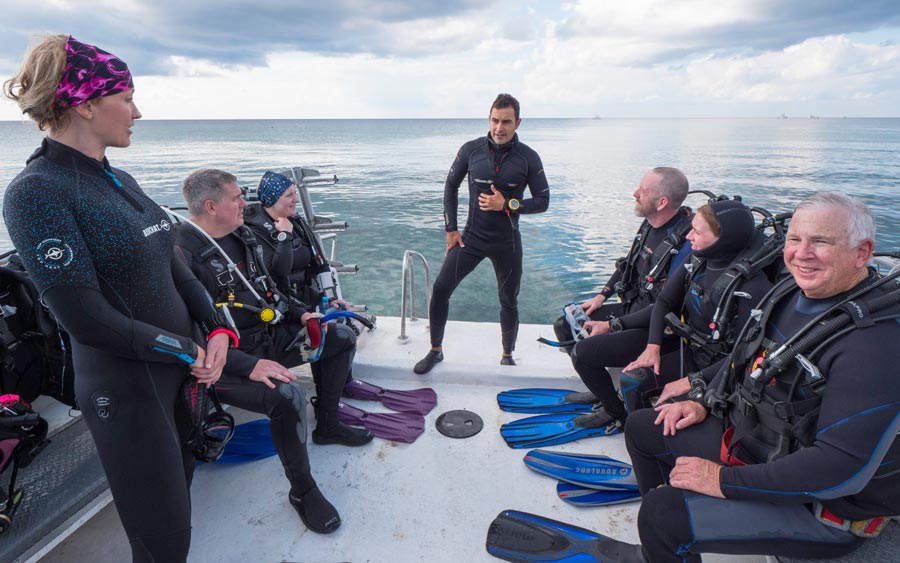4. Is a Scuba Diving Refresher Worth It?
Scuba refresher needs may vary from one person to another.
Even though for two people with the same length of inactivity, the refresher course may be more or less necessary.
A very experienced diver with an extensive dive log will not have equal refreshment needs as one who has only done 4 dives during the Open Water Diver course.
All will enjoy the benefits of dive reactivation, but some will be more aware of needing it than others. Oddly enough, it is usually the more experienced ones.
Yes, divers also suffer from the Dunning-Kruger effect. This psychological effect states that individuals with little knowledge and limited skills suffer a double burden: not only do they make regrettable mistakes, but their incompetence deprives them of the ability to realize it. In Spanish there is a saying “La ignorancia es la madre del atrevimiento” (ignorance is the mother of daring). But when we talk about scuba diving, it is a danger.
You will avoid these dangers by reviewing the theory and practice of diving with some exercises suggested by your diving Instructor.
5. What Is the Diving Refresher Course Process?
The diving refresher course has 2 parts, one theoretical and one practical.
-
The first part is theoretical
Don’t worry. You won’t have to reread the Open Water manual in the academic part. This part has 20 topics. Among them:
– dive preparation
– boat diving
– dive computers
– aquatic life
– problem management
– health and fitness for diving…
The most usual is to have a class with the Diving Instructor for about an hour where you will go over the concepts together.
But more and more people are choosing to go through the theory online and then ask questions.
The best thing about this program is that it adapts to your needs. First, the diving refresher course offers a brief general introduction to all the topics and then, it adapts to the student’s needs and offers the student only the contents he/she needs to reinforce. How is this possible? Very simple, the e-learning methodology makes it possible. The program poses some questions that the student answers, depending on his/her answers the diving refresher course shows some contents or others.
-
The Scuba Refresher Course’s second part is a practical
Again, the course follows the trial-and-error methodology. The instructor observes how you dive and grades on a check sheet that he carries with him.
You will review the assembly of the scuba diving equipment and its verification with your instructor. You will be reminded of diving skills such as sharing regulator, recovering it, how to act when the goggles fill with water, buoyancy control, etc.
In addition, the instructor will ask you to perform 5 tests to pass your diver refresher course.
- Remove your mask and put it back on.
- Demonstrate your ability to maintain neutral buoyancy.
- Buoyancy control with the BCD and weights in shallow water.
- Ascent with an alternate air source until you reach the surface.
- Other techniques or skills that the instructor feels will help you in the refreshment course.
The scuba diving refresher course practical part can be done in confined water or in the sea, but at shallow depths. After this point, you will do a complete open water dive, where you will feel completely comfortable in the water again. Of course, you will always be with your instructor.
When you successfully complete both parts of the dive refresher course, the certification agency of your choice will issue you a new card attesting to your reactivation.








